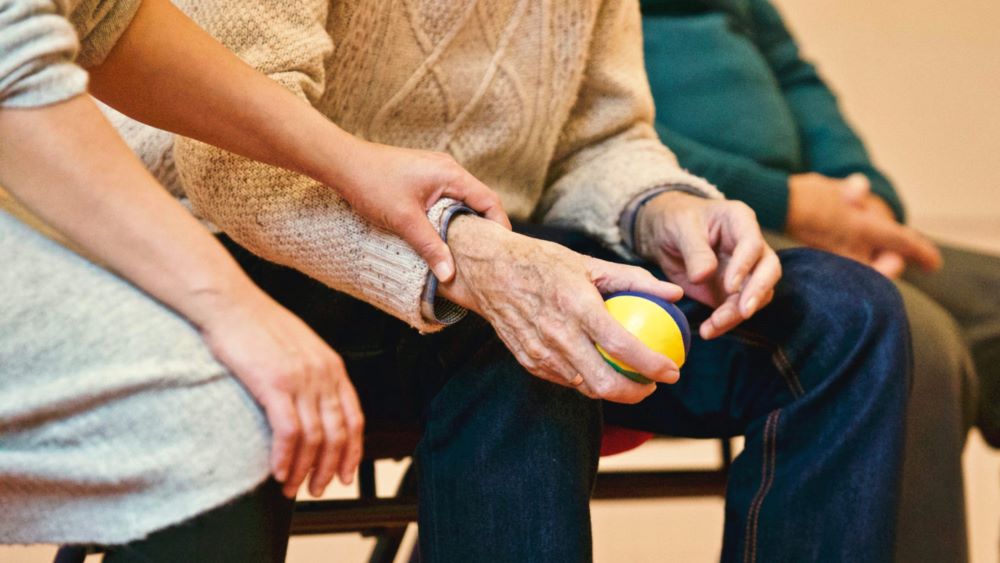
The Roles of a Hospice Care Team

Hospice care is an interdisciplinary form of care at the end of someone’s life, and it takes a whole team of compassionate practitioners and professionals to provide adequate healthcare, administrative assistance, and emotional, spiritual, and social support for patients and their families.
Hospice care can cover anything from administering medications to directing conversations about funeral plans–in other words, there’s a wide range of tasks to cover in hospice, which is why there are several different roles within this important practice.
Why it matters to know your hospice care team’s roles
Funeralocity is a consumer advocate in the death care industry, providing transparency into pricing for funeral homes and cremation providers around the country, as well as expert guidance on how to navigate end-of-life planning like funerals, cremations, burials, memorial services, and more.
While our specialty is funerals, we know there’s a lot to navigate leading up to the funeral. And for many, this last stage of life includes time spent in hospice care. In fact, according to The National Hospice and Palliative Care Organization NHPCO, over half of Medicare enrollees were in hospice care at the time of death.
What does this mean for the death care industry? It means that hospice care is an often integral part of the end-of-life journey. We believe that everyone involved at the end of someone’s life should have access to resources and knowledge around the entire journey, beyond just planning a funeral.
Understanding roles in hospice care as a patient or family member
As someone seeking out hospice care for yourself or for a loved one, knowing the different roles on a hospice care team is essential in order to make the best decisions about what kind of care is needed.
Being aware of the responsibilities and tasks handled by different hospice workers from the beginning of your hospice journey allows for everyone to do their job without friction.
Educational resources for hospice workers
Anyone who works in hospice care, knows that burnout is common in the industry. While your primary concern is to provide comfort and compassionate care for your patients, you’re also interacting with their closest loved ones, who likely have no compass for navigating the end of someone’s life.
Having resources on hand to guide those less experienced in end-of-life care is an invaluable safeguard against burnout or misunderstandings regarding the responsibilities held by different hospice team members.
The roles in hospice care
There are three categories of roles in hospice care:
- Healthcare
- Community, personal, and social services
- Administrative
Refer to this table explaining the different roles in hospice care, and the functions they serve for patients at the end of their life, as well as the families and loved ones involved.
| Role | Category of Care | Hospice Responsibilities |
|---|---|---|
| Hospice Administrator/Coordinator | Administrative | Hospice coordinators handle the management of the daily workload of staff providing direct patient care. They oversee the overall function of a hospice program, ensure coordination between the care team, and administrative tasks. |
| Hospice Nurse | Healthcare | A Registered Nurse (RN) Case Manager will likely be one of the most involved caretakers on your hospice team. They’re responsible for conducting regular patient assessments, managing pain and symptoms, administering medications, and monitoring the patient’s condition. Additionally, hospice nurses can offer guidance for patients and families on end-of-life care. |
| Hospice Physician | Healthcare | Also referred to as the medical director, this healthcare practitioner oversees the medical care of hospice patients, and can work in tandem with the primary care doctor or specialist that was previously managing the patient’s care. |
| Hospice Aid | Healthcare | Also called a Certified Nursing Assistant (CNA) or Home Health Aide, this role in hospice usually helps patients with personal care (such as hygiene and daily activities if possible). This hospice worker is there to maintain the patient’s dignity and comfort, and work closely with hospice nurses to provide hands-on care. |
| Hospice Social Worker | Community, personal, and social services | Hospice social workers provide important guidance around the end-of-life care journey, such as addressing psychosocial needs of patients and families by connecting patients and families with resources (like Funeralocity). They often help with end-of-life planning tasks, like assigning advanced directives or funeral arrangements. |
| Counselor/Bereavement Coordinator | Community, personal, and social services | The primary forms of support provided by a counselor in hospice include, emotional support for patients and family members, grief counseling, conflict resolution, and helping family members find support groups or community resources. |
| Chaplain | Community, personal, and social services | Much like a counselor or bereavement coordinator, chaplains provide non-medical support for patients and families. Their support focuses on spiritual or religious rituals or practices, if applicable to the patient. |
| Hospice Volunteers | Community, personal, and social services | Hospice care volunteers can assist with tasks such as offering companionship and emotional support to patients, or assisting with non-medical tasks, such as running errands or providing respite for family caregivers. |
Depending on factors like insurance or the hospice provider, all of these providers may not be available or covered, but it’s imperative to be aware of the care options out there within the field of hospice care.
While the list may look long, it’s also important to note that many of these functions can be fulfilled by one or two types of hospice workers, meaning your team of caregivers can stay small and intimate. Be sure to come prepared when it comes time to speak with a hospice administrator, and know the options available as well as the type of care you or your loved one is interested in receiving.










